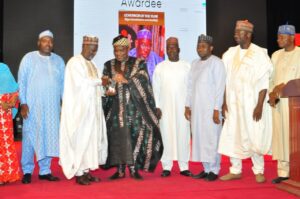


Agricultural agencies ease concerns about GMO crops
Some Federal Government agencies have allayed fears by Nigerians over the safety of genetically modified organisms (GMOs) crops.
The agencies addressed the issue in Abuja on Thursday, during a World Joint News Conference, to inform Nigerians about the safety of GMO technology in agriculture.
The conference was in response to social media reports regarding the negative effects of GMOs, which the agencies described as misinformation and unfounded.
The agencies include the Agricultural Research Council of Nigeria (ARCN), the National Biotechnology and Development Agency (NBDA), the National Agricultural Seed Council (NASC), and the National Biosafety Management Agency (NBMA).
Prof. Garba Sharubutu, Executive Secretary of ARCN, stated that the vast majority of studies had found no indication that GM foods posed a health threat.
Sharubutu noted that the scientific consensus was that gene-altered crops posed no more risks than those developed through conventional breeding techniques.
“More than 275 independent science organisations worldwide have concluded that food grown from genetically engineered seeds poses no unique health concerns,” he said.
He said that the agency was therefore, focused on ensuring prevention of drought and flood resistance, as well as improving productivity through GMO crops.
Sharubutu reassured Nigerians that GMO crops were not banned, and promised to take their concerns seriously, emphasising that there is no cause for alarm.
Prof. Abdullahi Mustapha, Director General of NBDA, highlighted that the issue of GMO safety had sparked controversy due to misinformation and misunderstanding.
Mustapha stressed that the aim of NBDA was to alleviate public concerns and dispel misinformation while promoting the advantages of GMO crops.
According to him, GMO crops have the potential to revolutionise food security and environmental safety, ensuring a good supply of food for future generations.
He assured Nigerians that GMOs were not harmful to human and animal environments, but were safe for consumption, thereby improving food security and reducing the use of harmful pest control methods.
Dr Khalid Ishiak, Acting Director General of NASC, affirmed that GMO technology had been certified by Nigerian scientists and the agency.
Ishiak urged Nigerians to believe in their technological advancements, emphasising the importance of self-reliance in food production.
He assured Nigerians that the technology had undergone thorough scrutiny, prioritising safety without compromising.
Dr Agnes Asagbra, Director General of NBMA, debunked the discouraging news reports on social media amidst food insecurity in Nigeria.
Asagbra also assured citizens that the government agencies were committed to ensuring the safety of Nigerian citizens.
According to her, NBMA is regulating biotechnology to ensure the safe practice of modern biotechnology, including GMO; and has ensured the safety of agri-biotechnology products, in collaboration with other Federal Government agencies to ensure comprehensive safety measures.



